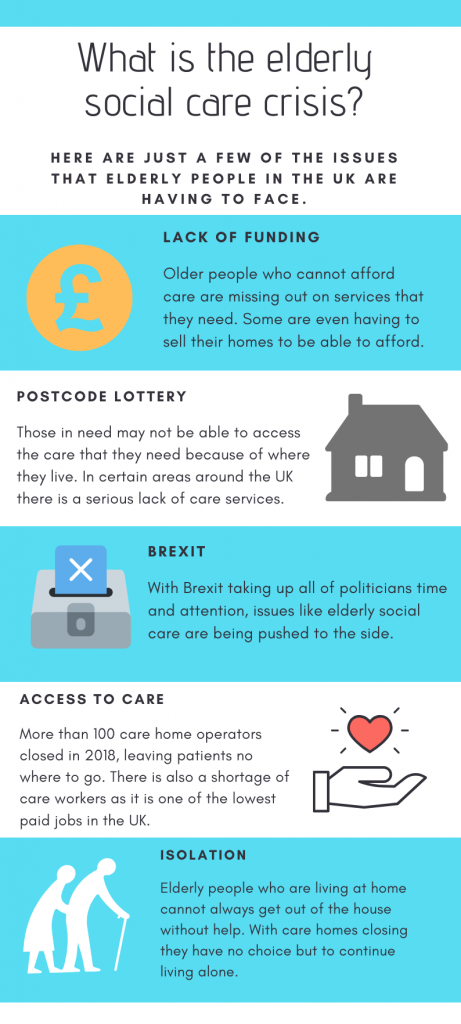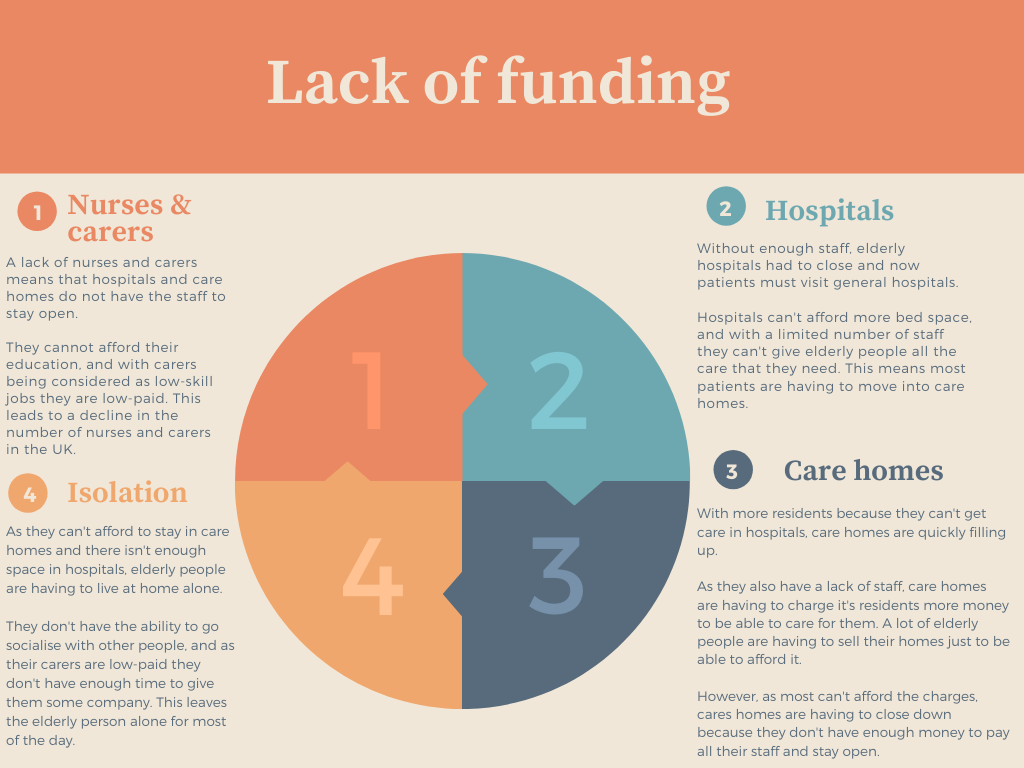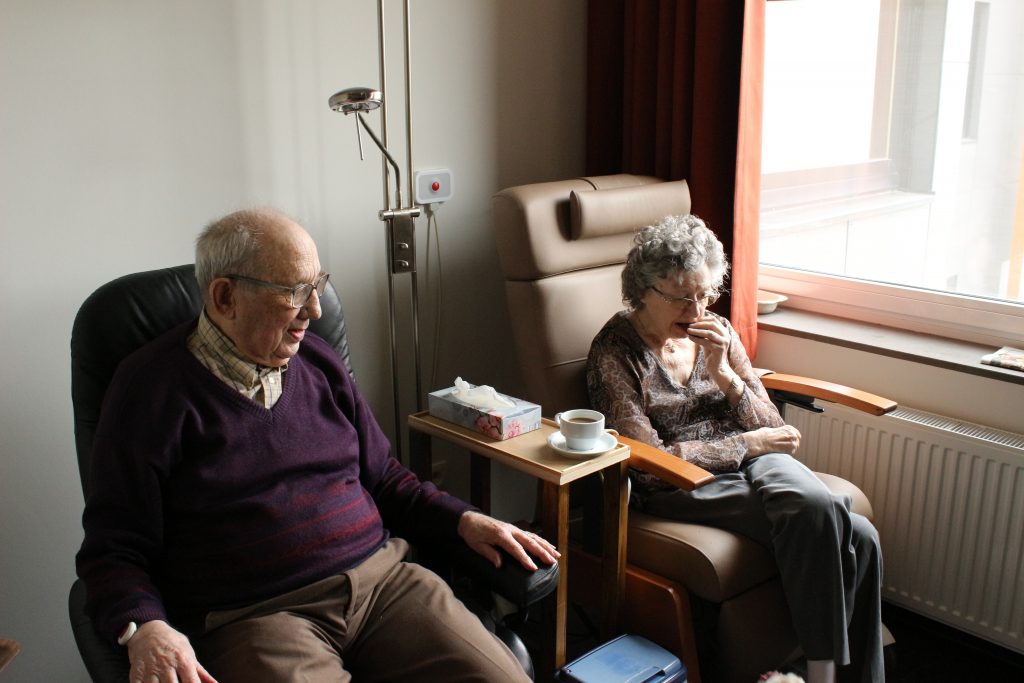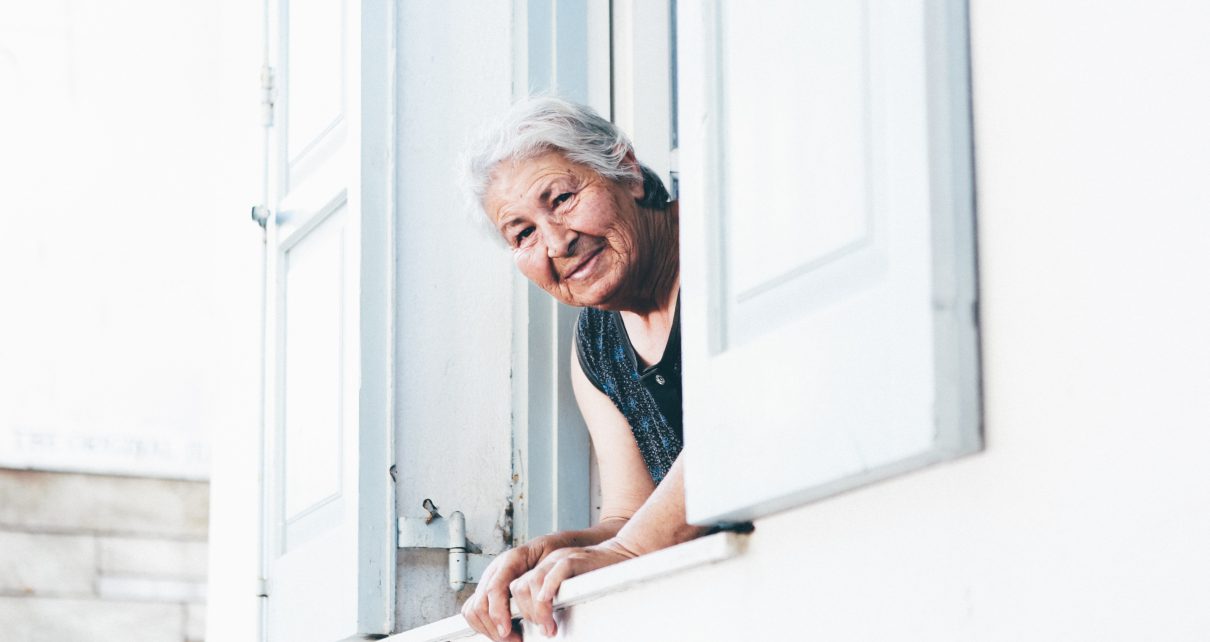Sat in her patterned armchair, watching out of her window, waiting for that daily visit. A car pulls up outside and she smiles to herself. Finally, when she talks someone will answer. She loves these fifteen minutes, its what she looks forward to each and every day.
Currently, more than 1.4 million elderly people in the UK are having difficulty finding the social care that they desperately need. With care homes closing and vital positions going unfilled, carers are calling for more funding to be able to spend more than fifteen minutes with their patients.

The main issue is a serious lack of Government spending. As the population continues to age, and hospitals continue to fill, the Government and local councils cannot control the shortfall in funding for elderly social care.
The lack of funding creates a continuous cycle that only serious reform can break.

This cycle leaves elderly people, who need care, all alone. It leaves them and their families with added stress, putting pressure on them to find a way to get the right amount of daily care and social contact without having to go as far as selling their homes.
Anne Hirst, the co-owner of Burgundy Care Services said:
“Bad discharges are the reason care fails. Patients are sent home before they are well and without adequate support. Care homes are the last resort for when everything else fails but you will have to sell your home to keep your place in care”.
Janet Redgwick, a carer at Burgundy Care Services said:
“It’s cheaper to keep someone at home rather than put them in a care home, but for most the only person they’ll see, morning and night, is the carer”.
Local Councils
Local Councils are trying to introduce new systems to help families fund care.
In Gloucestershire, the County Council has launched a care home strategy to ensure people can take control of their own healthcare and are provided with more support in their own homes.
They are aiming to:
- Introduce alternative forms of care and a new intermediate model of care using short term placements, to reduce the level of placements in care homes.
- Work with care home providers to support those returning home from care.
Talking about what she thinks local councils could do to improve the social care crisis, Janet Redgwick said:
“It always comes down to money but a lot of elderly hospitals have been closed down, leaving elderly people in general hospitals, where they don’t always have bed space”
“Some people end up staying in hospitals longer because they can’t get home care so they are taking another bed up. It’s a no-win situation”.
Gloucestershire’s care home strategy acknowledges that an aging population is one of the county’s key issues as the amount of the population represented by over 65s is expected to rise from 21.4% to 26% from 2019-2030.
The aging population is also a problem for the rest of the UK.
Based on statistics by GOV.UK
According to The Office for National Statistics, the UK’s population is aging and will continue to age. They say by 2050, one in four people in the UK will be aged 65 years or over.
The population is aging quickly and social care needs to improve at the same speed otherwise it will put more pressure on health resources such as the NHS.
The reality
Although Gloucestershire is working towards the goals of their care home strategy, since they introduced it, two care homes in Stroud have closed.
The council announced the closure of Wyatt House and Southfield House in August, after plans to make improvements on them were canceled.

There were 56 residents in total, and staff who were given only 48 hours notice of the closure and had to be moved to alternative facilities.
Over the past five years, more than 400 care homes have closed in the UK, as a result of rising costs and funding cuts.
How do we stop the cycle
The lack of funds going into elderly social care has turned it into one of the UK’s largest crises. Age UK has predicted that if nothing changes, then by 2030 there will be a total of 2.1 million elderly not receiving sufficient care.
During the Queen’s Speech, the Queen outlined the Conservative Government’s plan for the next parliamentary year, including how they plan to stop the elderly crisis;
- An extra £1 billion will be given to adult and social care each year for the next five years.
- Starting a cross-party consensus to decide on a long-term social care reform.
Janet Redgwick is hoping that extra funding will allow carers to spend more time with their patients, she said:
“Can you imagine an old person stuck in this situation without any family, the carer becomes the main person in their life.”
“Most companies can only afford fifteen-minute calls at each house. That means they run in and run back out again, by the time they’ve made a sandwich and a cup of tea, they have to leave again”.
15 minutes later: She’s back in her chair, watching out the window, waiting for her fifteen minutes to start again tomorrow. Is this the life we want for our elderly?
